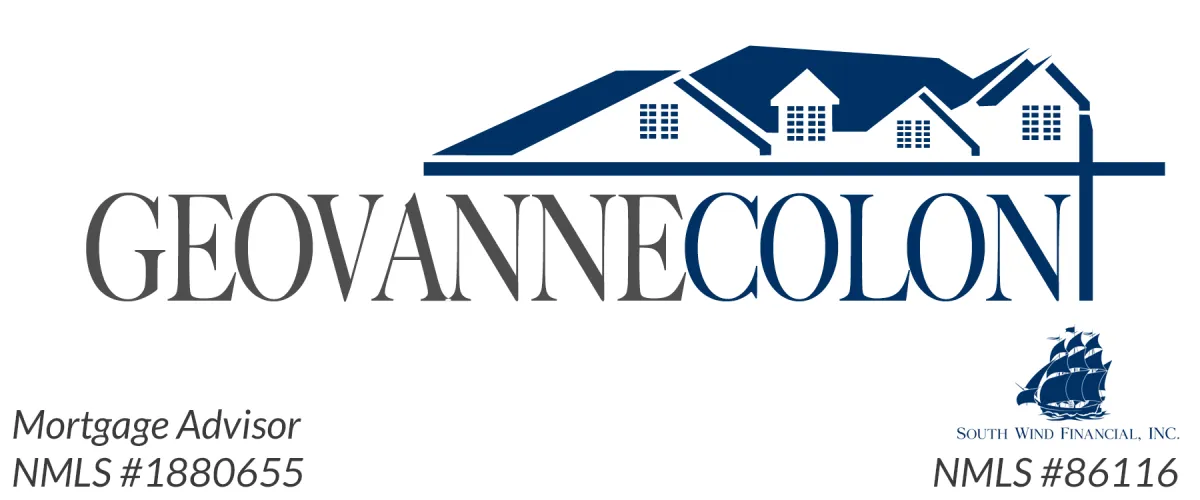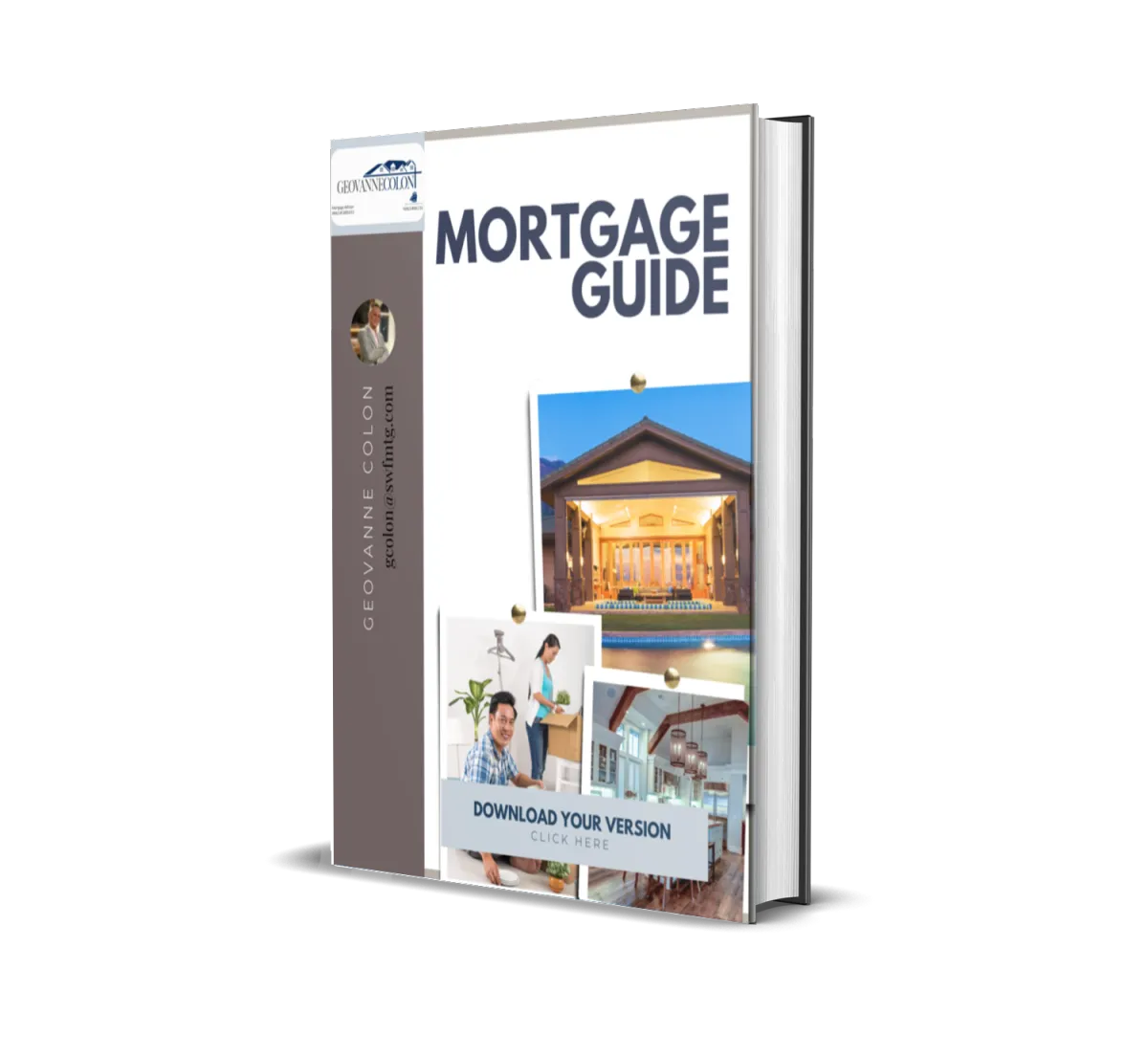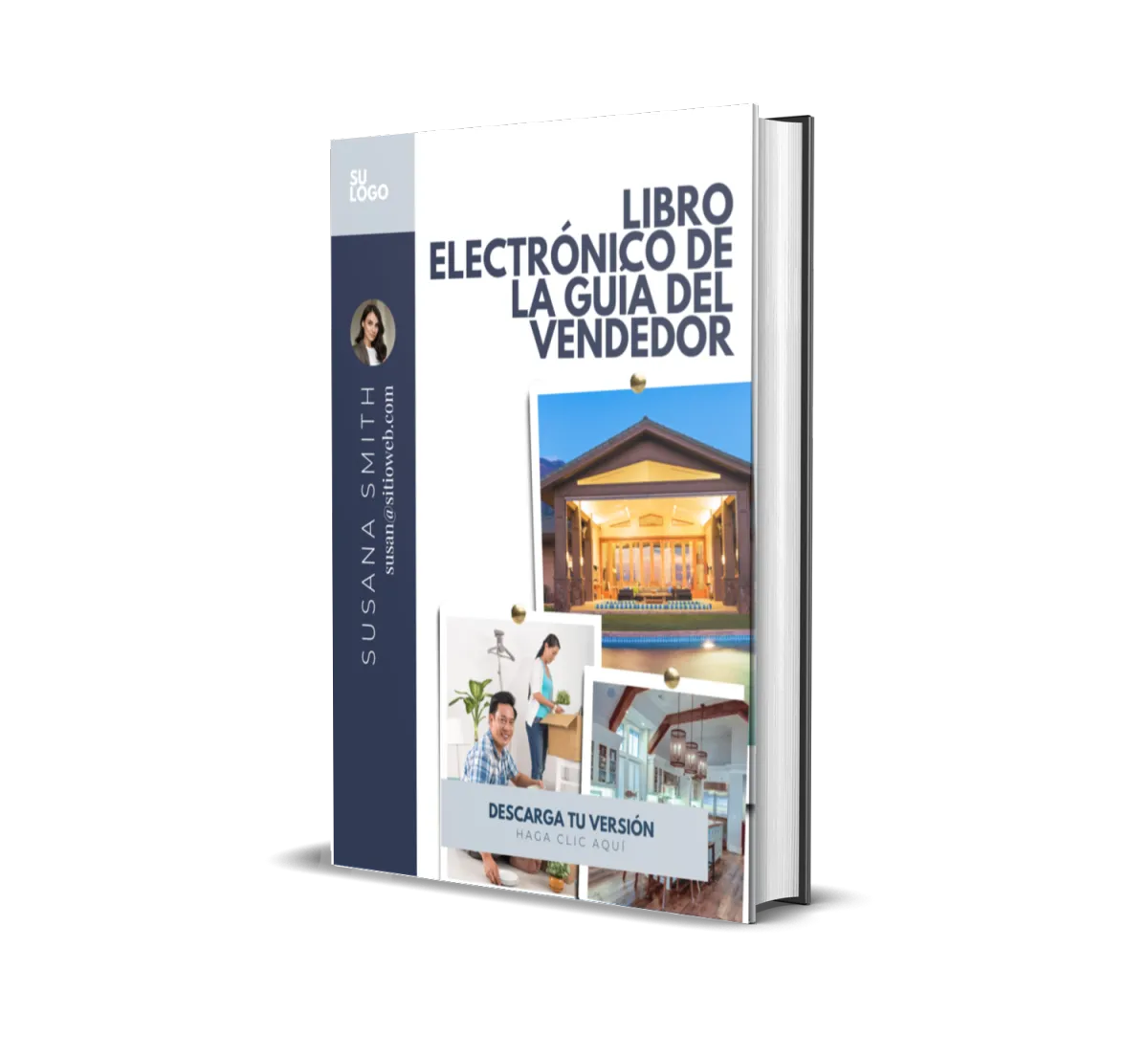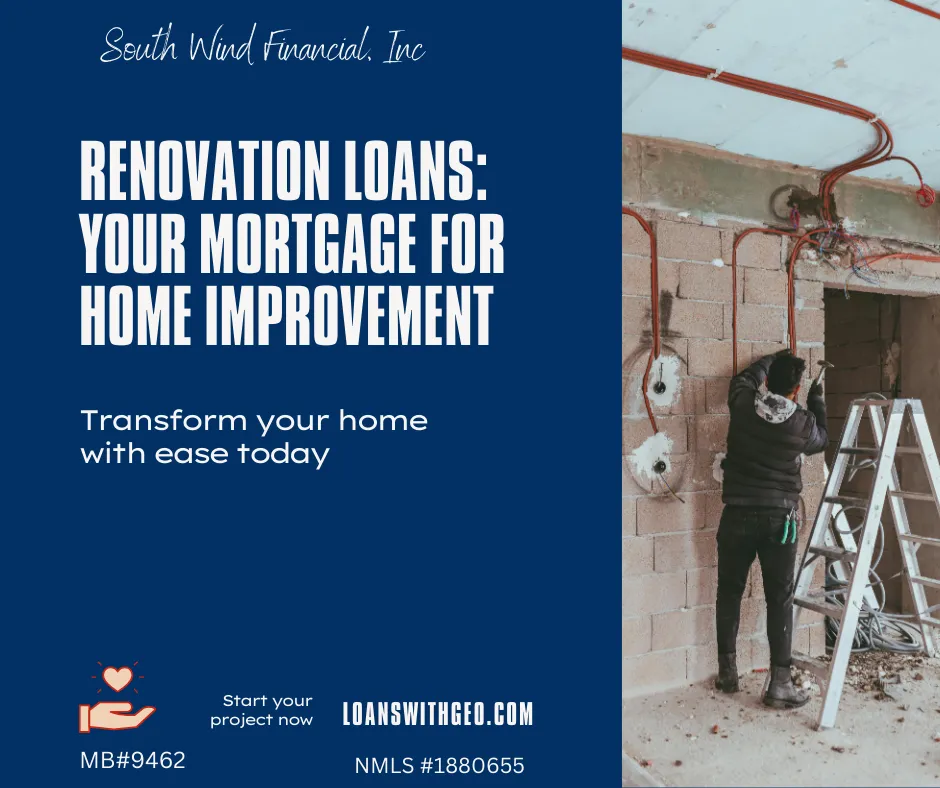617-821-1757

Looking For FHA Loans?
Apply today for the mortgage
that’s right for you.
Unlock Low Rates with Ease
Discover how Geovanne Colon simplifies the mortgage qualification process for you.
Apply today for the mortgage
that’s right for you.
Unlock Low Rates with Ease
Discover how Geovanne Colon simplifies the mortgage qualification process for you.
Low Rate.
Zero Hassles.
Get a free quote
Low Rate.
Zero Hassles.
Get a free quote
Feel Overwhelmed by Mortgage Choices? I Understand.

Feeling Lost in a Sea of Mortgage Options? Finding the right mortgage can be a daunting task. With an overwhelming array of rates, terms, and lenders, it's easy to feel lost and uncertain. Are you worried about high interest rates, hidden fees, or choosing a mortgage that doesn't fit your long-term goals?
Why Choose Us?
Ready to Start?
Your perfect home won't wait forever, and neither should you. Begin your journey today with a loan officer that puts you first. By choosing us, you're not just getting a loan – you're gaining a lifelong partner in all your mortgage endeavors.
Start your no-obligation consultation now and join the myriad of satisfied homeowners who have unlocked the doors to their future with ease and confidence. Dive into our world of simplified lending, and let's turn your homeownership dreams into reality.
Welcome Home!
Loan Programs We Help With
Seamless Solutions, Limitless Possibilities
Residential Mortgage Programs
1. FHA Loans
Federal Housing Administration (FHA) Loans
• Suitable for first-time homebuyers
• Low down payment options (as low as 3.5%)
• Requires mortgage insurance
• Lenient credit scores accepted
• 203K Renovation Loans Available
2. Conventional Loans
Conventional Mortgage Loans
• Preferred by borrowers with stronger credit
• Down payments as low as 3%
• Available in fixed or adjustable rates
• No government insurance premiums
• HomeStyle Renovation Loan Available
3. USDA Loans
US Department of Agriculture (USDA) Loans
• Ideal for eligible rural and suburban homebuyers
• Zero down payment
• Low insurance costs
• Income and geographic restrictions apply
4. VA Loans
Veterans Affairs (VA) Mortgage Loans
• Exclusively for veterans, active-duty service members, and eligible spouses
• No down payment required
• No mortgage insurance needed
• Competitive interest rates
A. ITIN - No Social Security Loans
• For borrowers with an Individual Tax Identification Number
• Lacks Social Security number
B. 1099 Loans
• Designed for independent contractors or self-employed individuals
• Based on the 1099 tax form income
C. VOE Only
• Verification of employment as the primary source of income validation
D. Asset Depletion
• Utilizes borrower's liquid assets for qualification purposes
E. Bank Statement Loans
• Income based on bank statements, suitable for self-employed borrowers
F. DSCR - Investor No Income Verification
• For real estate investors, using property cash flow as a qualification metric
Non-Qualified Mortgage (Non-QM) Loans
Loan Programs We Help With
Seamless Solutions, Limitless Possibilities
Residential Mortgage Programs
1. FHA Loans
Federal Housing Administration (FHA) Loans
• Suitable for first-time homebuyers
• Low down payment options (as low as 3.5%)
• Requires mortgage insurance
• Lenient credit scores accepted
2. Conventional Loans
Conventional Mortgage Loans
• Preferred by borrowers with stronger credit
• Down payments as low as 3%
• Available in fixed or adjustable rates
• No government insurance premiums
3. USDA Loans
US Department of Agriculture (USDA) Loans
• Ideal for eligible rural and suburban homebuyers
• Zero down payment
• Low insurance costs
• Income and geographic restrictions apply
4. VA Loans
Veterans Affairs (VA) Loans
• Exclusively for veterans, active-duty service members, and eligible spouses
• No down payment required
• No mortgage insurance needed
• Competitive interest rates
Non-Qualified Mortgage (Non-QM) Loans
A. ITIN - No Social Security Loans
• For borrowers with an Individual Tax Identification Number
• Lacks Social Security number
B. 1099 Loans
• Designed for independent contractors or self-employed individuals
• Based on the 1099 tax form income
C. VOE Only
• Verification of employment as the primary source of income validation
D. Asset Depletion
• Utilizes borrower's liquid assets for qualification purposes
E. Bank Statement Loans
• Income based on bank statements, suitable for self-employed borrowers
F. DSCR - Investor No Income Verification
• For real estate investors, using property cash flow as a qualification metric
More Loan Programs
Foreign National Loans
• Tailored for non-U.S. citizens looking to buy investment or vacation properties in the U.S.
• May require larger down payments and proof of foreign income.
Jumbo Loans
• Exceed the loan limits set by the FHFA for conventional mortgages.
• Requires non-traditional underwriting to accommodate the larger loan amount.
Real Estate Investor Loans
• Customized loans for experienced real estate investors.
• Can include options for multiple properties under a single loan (blanket loans).
Non-Warrantable Condo Loans
• For condos that do not meet specific requirements by Fannie Mae or Freddie Mac.
• Necessary for financing condos in buildings with more owner-occupied spaces or litigation issues.
Credit Event Loans
• Available to borrowers with significant derogatory credit events, such as bankruptcy or foreclosure.
• Typically requires a higher down payment or additional reserves.
Hard Money/Private Lending
•For immediate or short-term financing needs
• Higher-cost, short-term loans
• Asset-based lending criteria
• Terms typically around 12 months
Fix and Flips
• Loans crafted for renovating and flipping properties
Commercial Loans
•Tailored for businesses to purchase or refinance commercial property
• Offering solutions for office buildings, retail spaces, and industrial properties
• Custom terms to align with business strategies
New Construction
• Financing for ground-up construction projects
Small Business Administration (SBA) Loans
• Federally backed to help start or grow a business
• Lower down payments
• Longer repayment terms
• Focused on small businesses
Bridge Loans
• Short-term loans to bridge the gap during transitional periods
Down Payment Assistance Programs
• Provides prospective homebuyers with loans or grants that they can use toward the down payment for a house.
• Most down payment assistance programs are designed for first-time homebuyers and offered by various institutions, such as government, non-profits, or lenders.
More Loan Programs
Foreign National Loans
• Tailored for non-U.S. citizens looking to buy investment or vacation properties in the U.S.
• May require larger down payments and proof of foreign income.
Jumbo Loans
• Exceed the loan limits set by the FHFA for conventional mortgages.
• Requires non-traditional underwriting to accommodate the larger loan amount.
Real Estate Investor Loans
• Customized loans for experienced real estate investors.
• Can include options for multiple properties under a single loan (blanket loans).
Non-Warrantable Condo Loans
• For condos that do not meet specific requirements by Fannie Mae or Freddie Mac.
• Necessary for financing condos in buildings with more owner-occupied spaces or litigation issues.
Credit Event Loans
• Available to borrowers with significant derogatory credit events, such as bankruptcy or foreclosure.
• Typically requires a higher down payment or additional reserves.
Hard Money/Private Lending
•For immediate or short-term financing needs
• Higher-cost, short-term loans
• Asset-based lending criteria
• Terms typically around 12 months
Fix and Flips
• Loans crafted for renovating and flipping properties
Commercial Loans
•Tailored for businesses to purchase or refinance commercial property
• Offering solutions for office buildings, retail spaces, and industrial properties
• Custom terms to align with business strategies
New Construction
• Financing for ground-up construction projects
Small Business Administration (SBA) Loans
• Federally backed to help start or grow a business
• Lower down payments
• Longer repayment terms
• Focused on small businesses
Bridge Loans
• Short-term loans to bridge the gap during transitional periods
Down Payment Assistance Programs
• Provides prospective homebuyers with loans or grants that they can use toward the down payment for a house.
• Most down payment assistance programs are designed for first-time homebuyers and offered by various institutions, such as government, non-profits, or lenders.
Who We Help?
Seamless Solutions, Limitless Possibilities
First Time Home Buyers
We know how overwhelming the process of buying a home is, especially if it is the first time that you're doing it. We will work closely with you to explain the process, to protect you from making mistakes that could cost you later, and to ensure that your mortgage gets approved and you get the home that you are so excited to be buying!
Move Up and Second Home Buyers
Buying a new home when you currently own one has it's own unique set of concerns. We can answer all of your questions about how to qualify and purchase a home when you already own one whether you're buying a new primary residence or a second vacation home.
Refinancing Home Owners
If you already own your home but you are looking to refinance to either save money with a lower interest rate or possibly take some cash out for any reason, we can help you with that. We also can show you how to make sure you are structuring your new financing to get the best deal possible.
Investment Buyers
If you're buying real estate for investment purposes, we can help you secure low rate financing to maximize your ROI.
Seniors Seeking Reverse Mortgages
If you are 62 years or older and are looking for options to stay in your home without a mortgage payment or to access your home's equity while still living there, I can answer your questions about reverse mortgages so you can decide if they are right for you.
What My Clients Say
Ready to Find Your Perfect Mortgage?
Are You A First Time Home Buyer?
Download Our Free Home Buyer's Guide

Other Resources You'll Find Helpful

Buyer's Guide for Real Estate Agent
(English)

Buyer's Guide for Real Estate Agent
(Spanish)

Seller's Guide for Real Estate Agent
(English)

Seller's Guide for Real Estate Agent
(Spanish)
Calculate Your Mortgage Payment
Our Blogs

Renovation Loans: Your Mortgage for Home Improvement
Renovation Loans: Your Mortgage for Home Improvement
Homeowners often find themselves in situations where their current home requires significant upgrades or repairs. In these cases, renovation loans serve as a crucial financing option to facilitate home improvement projects. These loans allow homeowners to not only finance the purchase of a property but also cover the costs associated with renovations, making them an invaluable tool for enhancing the value of your home. In this article, we will explore what renovation loans are, the various types available, how to finance home improvements, their benefits, and tips for selecting the best renovation loan for your needs.
What is a Renovation Loan and How Does It Work?
Understanding the Basics of a Renovation Loan
A renovation loan is a financial product that enables homeowners to borrow funds specifically for home improvement projects. Unlike a traditional mortgage, which typically covers only the purchase price of a property, a renovation loan combines both the home purchase and renovation costs into one mortgage. This means that you can finance not only the acquisition of your current home but also any major renovation work that needs to be done, making it easier to manage your finances. This type of loan is particularly beneficial for those who are buying a fixer-upper, as it streamlines the financing process by allowing you to roll the cost of renovations into your mortgage loan.
How a Renovation Loan Differs from a Traditional Mortgage
The primary distinction between a renovation loan and a traditional mortgage lies in the purpose of the funds. While a traditional mortgage solely provides financing for purchasing a home, a renovation loan offers additional funds for home improvements. For instance, traditional mortgages do not consider renovation costs in the loan amount. In contrast, renovation loans, such as those offered by FHA, Fannie Mae, and Freddie Mac, allow you to borrow based on the projected value of the home after renovations are completed. This means that you could potentially qualify for a higher loan amount, as lenders will consider the future value of your home post-renovation when determining your eligibility.
Steps in the Renovation Loan Process
The renovation loan process begins with a consultation with a loan officer to determine your eligibility and to discuss the specific renovation costs you plan to incur. Once approved, you will need to provide a renovation contract detailing the scope of work, which is essential for estimating the costs involved. After this, the lender will appraise the current value of the home and estimate its future value after the renovations are complete. Upon finalizing the loan amount, the funds are disbursed, often in stages, as the renovation project progresses. This structured approach helps to ensure that the money is used appropriately and that the renovation process stays on track.
What Are the Different Types of Renovation Loans Available?
Exploring Home Renovation Loan Options
There are several types of renovation loans available to homeowners looking to finance their home improvement projects. Among the most popular options are the FHA 203(k) loan, the Fannie Mae HomeStyle Renovation loan, and the VA renovation loan. Each of these loans caters to different needs and financial situations. The FHA 203(k) loan, for instance, allows for lower down payments and is specifically designed for low-to-moderate-income buyers. On the other hand, the Fannie Mae HomeStyle renovation loan can be used for more extensive renovations and is available to a broader range of borrowers. The VA renovation loan is tailored for veterans and active-duty service members, offering favorable terms and conditions.
FHA vs. Fannie Mae Renovation Loans
When comparing FHA and Fannie Mae renovation loans, it is crucial to understand the unique benefits each offers. FHA loans, backed by the Federal Housing Administration, provide lower credit score requirements and down payments as low as 3.5%, making them accessible to first-time homebuyers. However, they come with mortgage insurance costs that can increase the overall expense of the loan. On the other hand, Fannie Mae's HomeStyle renovation loan is more flexible in terms of the types of renovations covered and can be used for luxury improvements, not just essential repairs. Additionally, Fannie Mae loans may allow for higher loan limits, thus accommodating larger renovation projects.
Best Loan Options for Home Improvements
Choosing the best loan option for your home improvement project will depend on several factors, including your financial situation and the scope of your renovation project. If you're looking for a loan with a lower down payment and flexible credit requirements, the FHA 203(k) loan may be ideal. Conversely, if you have equity in your current home and want to finance extensive renovations, a Home Equity Line of Credit (HELOC) or a Home Equity Loan may be a better fit. These options allow you to tap into the value of your home while keeping the renovation costs manageable. Understanding the various types of renovation loans will help ensure that you choose the best financing solution tailored to your needs.
How Do You Finance Home Improvements with a Renovation Loan?
Understanding Renovation Financing Options
Financing home improvements through a renovation loan involves a thorough understanding of the various renovation financing options available. Renovation loans can cover everything from minor updates to major renovations, but it is essential to have a clear idea of your financing needs before applying. This includes assessing the total renovation costs, understanding how much equity you have in your current home, and determining your budget for the project. By working closely with your loan officer, you can explore various financing options and choose the one that provides the best balance between cost and flexibility.
Home Equity Line of Credit vs. Renovation Loans
When considering financing options for home improvements, many homeowners often weigh the benefits of a Home Equity Line of Credit (HELOC) against renovation loans. A HELOC allows you to borrow against the equity you've built in your home, offering a revolving credit line that can be accessed as needed. This can be advantageous for smaller renovation projects where you may not need a large sum upfront. However, renovation loans provide a structured approach to financing, often with lower interest rates and fixed repayment terms, making them more suitable for larger renovation projects. Ultimately, the choice between a HELOC and a renovation loan will depend on your specific financial situation and renovation goals.
Evaluating Renovation Costs and Budgeting for Your Project
Before committing to a renovation loan, it is crucial to evaluate the renovation costs associated with your project and budget accordingly. This involves obtaining quotes from contractors, understanding the scope of work, and factoring in potential costs for permits and inspections. A well-defined renovation contract will ensure that there are no surprises during the renovation process and that you stay within budget. Additionally, having a contingency plan for unexpected costs can help you avoid financial strain should any issues arise during the renovation. By taking the time to evaluate costs upfront, you can secure a renovation loan that aligns with your financial goals and project expectations.
What Are the Benefits of Using a Home Renovation Loan?
Advantages of Financing Home Improvements
Utilizing a home renovation loan to finance your home improvement projects offers several advantages. First and foremost, it allows you to consolidate your renovation costs into one manageable mortgage payment, simplifying your financial obligations. Additionally, renovation loans often come with competitive mortgage rates, making them an attractive financing option. By financing your renovations, you can also preserve your savings for emergencies or other investments. Furthermore, using a renovation loan rather than personal loans or credit cards can help you avoid higher interest rates, making it a more cost-effective solution for funding your home improvements.
Potential Savings on Mortgage Insurance
Another notable benefit of renovation loans, particularly those backed by the FHA, is the potential savings on mortgage insurance. Since FHA loans are designed for low-to-moderate-income borrowers, they often come with lower mortgage insurance premiums compared to conventional loans. This can translate to significant savings over the life of the loan, making it easier for homeowners to manage their monthly budget. By reducing the overall cost of mortgage insurance, you can allocate more funds toward your renovation project, further enhancing the value of your home.
How a Renovation Loan Can Increase Your Home's Value
Using a renovation loan to fund home improvements can substantially increase the value of your home. Renovations not only enhance aesthetics but can also improve functionality and energy efficiency, making your home more appealing to potential buyers. Projects like kitchen remodels, bathroom upgrades, and energy-efficient installations often yield high returns on investment. As you invest in your home through well-planned renovations, you are not only creating a more enjoyable living space but also building equity that can pay off in the long run. A renovation loan provides the means to make these enhancements, ultimately leading to increased value of your home.
How to Choose the Best Renovation Loan for Your Needs?
Factors to Consider When Selecting a Renovation Loan
Choosing the best renovation loan requires careful consideration of several factors. First, assess your financial situation, including your credit score, income level, and existing debt. This will help you determine the types of renovation loans for which you may qualify. Next, evaluate the scope of your renovation project and the associated costs. Understanding your budget and how much you are willing to borrow will guide your decision-making process. Additionally, consider the loan terms, interest rates, and any associated fees to ensure you select a loan that aligns with your financial goals.
Comparing Loan Types for Home Renovation Projects
When comparing loan types for home renovation projects, it is vital to understand the unique features and benefits of each option. For instance, if you are a first-time homebuyer, an FHA loan may be the most accessible choice due to its lower down payment requirements. If you have equity in your current home, exploring a Home Equity Line of Credit could provide the flexibility you need. Additionally, consider the differences between traditional renovation loans and government-backed options, such as VA and USDA renovation loans, which may offer favorable terms for eligible borrowers. By comparing these loan types, you can select the one that best meets your needs and project goals.
Tips for Securing the Best Loan Terms
To secure the best loan terms for your renovation project, it's essential to shop around and compare offers from multiple lenders. This involves obtaining quotes from various financial institutions and assessing their interest rates, loan terms, and fees which a Mortgage Broker does for you. Additionally, being prepared with a strong credit profile, documenting your income and assets, and presenting a well-defined renovation plan can enhance your negotiating power with lenders. Don't hesitate to ask your loan officer questions and seek clarification on any terms you don’t understand. By doing thorough research and preparation, you can increase your chances of securing favorable loan terms that support your home renovation project.
If you're considering a home loan to upgrade your living space or even refinance your current mortgage, now is the perfect time to explore your options. Whether you're buying a home or refinancing a home, our team at South Wind Financial can help you navigate through various programs, including the Fannie Mae Homestyle loan and renovation mortgage. These options allow you to combine the costs of home improvements with your first mortgage, making it easier than ever to create your dream home. If you're buying a fixer-upper, a renovation loan agreement could be your best solution.
With a cash-out refinance loan, you can tap into your home's equity to fund renovations or other expenses. Our renovation loan specialists are here to guide you through the process, whether you're looking for a traditional home equity loan or options for a second home or investment property. Don't hesitate to reach out to us for personalized assistance!
If you’re ready to take the next step in your homeownership journey, give us a call at 617-821-1757 or Email us at [email protected]. Let’s make your renovation dreams a reality!

Renovation Loans: Your Mortgage for Home Improvement
Renovation Loans: Your Mortgage for Home Improvement
Homeowners often find themselves in situations where their current home requires significant upgrades or repairs. In these cases, renovation loans serve as a crucial financing option to facilitate home improvement projects. These loans allow homeowners to not only finance the purchase of a property but also cover the costs associated with renovations, making them an invaluable tool for enhancing the value of your home. In this article, we will explore what renovation loans are, the various types available, how to finance home improvements, their benefits, and tips for selecting the best renovation loan for your needs.
What is a Renovation Loan and How Does It Work?
Understanding the Basics of a Renovation Loan
A renovation loan is a financial product that enables homeowners to borrow funds specifically for home improvement projects. Unlike a traditional mortgage, which typically covers only the purchase price of a property, a renovation loan combines both the home purchase and renovation costs into one mortgage. This means that you can finance not only the acquisition of your current home but also any major renovation work that needs to be done, making it easier to manage your finances. This type of loan is particularly beneficial for those who are buying a fixer-upper, as it streamlines the financing process by allowing you to roll the cost of renovations into your mortgage loan.
How a Renovation Loan Differs from a Traditional Mortgage
The primary distinction between a renovation loan and a traditional mortgage lies in the purpose of the funds. While a traditional mortgage solely provides financing for purchasing a home, a renovation loan offers additional funds for home improvements. For instance, traditional mortgages do not consider renovation costs in the loan amount. In contrast, renovation loans, such as those offered by FHA, Fannie Mae, and Freddie Mac, allow you to borrow based on the projected value of the home after renovations are completed. This means that you could potentially qualify for a higher loan amount, as lenders will consider the future value of your home post-renovation when determining your eligibility.
Steps in the Renovation Loan Process
The renovation loan process begins with a consultation with a loan officer to determine your eligibility and to discuss the specific renovation costs you plan to incur. Once approved, you will need to provide a renovation contract detailing the scope of work, which is essential for estimating the costs involved. After this, the lender will appraise the current value of the home and estimate its future value after the renovations are complete. Upon finalizing the loan amount, the funds are disbursed, often in stages, as the renovation project progresses. This structured approach helps to ensure that the money is used appropriately and that the renovation process stays on track.
What Are the Different Types of Renovation Loans Available?
Exploring Home Renovation Loan Options
There are several types of renovation loans available to homeowners looking to finance their home improvement projects. Among the most popular options are the FHA 203(k) loan, the Fannie Mae HomeStyle Renovation loan, and the VA renovation loan. Each of these loans caters to different needs and financial situations. The FHA 203(k) loan, for instance, allows for lower down payments and is specifically designed for low-to-moderate-income buyers. On the other hand, the Fannie Mae HomeStyle renovation loan can be used for more extensive renovations and is available to a broader range of borrowers. The VA renovation loan is tailored for veterans and active-duty service members, offering favorable terms and conditions.
FHA vs. Fannie Mae Renovation Loans
When comparing FHA and Fannie Mae renovation loans, it is crucial to understand the unique benefits each offers. FHA loans, backed by the Federal Housing Administration, provide lower credit score requirements and down payments as low as 3.5%, making them accessible to first-time homebuyers. However, they come with mortgage insurance costs that can increase the overall expense of the loan. On the other hand, Fannie Mae's HomeStyle renovation loan is more flexible in terms of the types of renovations covered and can be used for luxury improvements, not just essential repairs. Additionally, Fannie Mae loans may allow for higher loan limits, thus accommodating larger renovation projects.
Best Loan Options for Home Improvements
Choosing the best loan option for your home improvement project will depend on several factors, including your financial situation and the scope of your renovation project. If you're looking for a loan with a lower down payment and flexible credit requirements, the FHA 203(k) loan may be ideal. Conversely, if you have equity in your current home and want to finance extensive renovations, a Home Equity Line of Credit (HELOC) or a Home Equity Loan may be a better fit. These options allow you to tap into the value of your home while keeping the renovation costs manageable. Understanding the various types of renovation loans will help ensure that you choose the best financing solution tailored to your needs.
How Do You Finance Home Improvements with a Renovation Loan?
Understanding Renovation Financing Options
Financing home improvements through a renovation loan involves a thorough understanding of the various renovation financing options available. Renovation loans can cover everything from minor updates to major renovations, but it is essential to have a clear idea of your financing needs before applying. This includes assessing the total renovation costs, understanding how much equity you have in your current home, and determining your budget for the project. By working closely with your loan officer, you can explore various financing options and choose the one that provides the best balance between cost and flexibility.
Home Equity Line of Credit vs. Renovation Loans
When considering financing options for home improvements, many homeowners often weigh the benefits of a Home Equity Line of Credit (HELOC) against renovation loans. A HELOC allows you to borrow against the equity you've built in your home, offering a revolving credit line that can be accessed as needed. This can be advantageous for smaller renovation projects where you may not need a large sum upfront. However, renovation loans provide a structured approach to financing, often with lower interest rates and fixed repayment terms, making them more suitable for larger renovation projects. Ultimately, the choice between a HELOC and a renovation loan will depend on your specific financial situation and renovation goals.
Evaluating Renovation Costs and Budgeting for Your Project
Before committing to a renovation loan, it is crucial to evaluate the renovation costs associated with your project and budget accordingly. This involves obtaining quotes from contractors, understanding the scope of work, and factoring in potential costs for permits and inspections. A well-defined renovation contract will ensure that there are no surprises during the renovation process and that you stay within budget. Additionally, having a contingency plan for unexpected costs can help you avoid financial strain should any issues arise during the renovation. By taking the time to evaluate costs upfront, you can secure a renovation loan that aligns with your financial goals and project expectations.
What Are the Benefits of Using a Home Renovation Loan?
Advantages of Financing Home Improvements
Utilizing a home renovation loan to finance your home improvement projects offers several advantages. First and foremost, it allows you to consolidate your renovation costs into one manageable mortgage payment, simplifying your financial obligations. Additionally, renovation loans often come with competitive mortgage rates, making them an attractive financing option. By financing your renovations, you can also preserve your savings for emergencies or other investments. Furthermore, using a renovation loan rather than personal loans or credit cards can help you avoid higher interest rates, making it a more cost-effective solution for funding your home improvements.
Potential Savings on Mortgage Insurance
Another notable benefit of renovation loans, particularly those backed by the FHA, is the potential savings on mortgage insurance. Since FHA loans are designed for low-to-moderate-income borrowers, they often come with lower mortgage insurance premiums compared to conventional loans. This can translate to significant savings over the life of the loan, making it easier for homeowners to manage their monthly budget. By reducing the overall cost of mortgage insurance, you can allocate more funds toward your renovation project, further enhancing the value of your home.
How a Renovation Loan Can Increase Your Home's Value
Using a renovation loan to fund home improvements can substantially increase the value of your home. Renovations not only enhance aesthetics but can also improve functionality and energy efficiency, making your home more appealing to potential buyers. Projects like kitchen remodels, bathroom upgrades, and energy-efficient installations often yield high returns on investment. As you invest in your home through well-planned renovations, you are not only creating a more enjoyable living space but also building equity that can pay off in the long run. A renovation loan provides the means to make these enhancements, ultimately leading to increased value of your home.
How to Choose the Best Renovation Loan for Your Needs?
Factors to Consider When Selecting a Renovation Loan
Choosing the best renovation loan requires careful consideration of several factors. First, assess your financial situation, including your credit score, income level, and existing debt. This will help you determine the types of renovation loans for which you may qualify. Next, evaluate the scope of your renovation project and the associated costs. Understanding your budget and how much you are willing to borrow will guide your decision-making process. Additionally, consider the loan terms, interest rates, and any associated fees to ensure you select a loan that aligns with your financial goals.
Comparing Loan Types for Home Renovation Projects
When comparing loan types for home renovation projects, it is vital to understand the unique features and benefits of each option. For instance, if you are a first-time homebuyer, an FHA loan may be the most accessible choice due to its lower down payment requirements. If you have equity in your current home, exploring a Home Equity Line of Credit could provide the flexibility you need. Additionally, consider the differences between traditional renovation loans and government-backed options, such as VA and USDA renovation loans, which may offer favorable terms for eligible borrowers. By comparing these loan types, you can select the one that best meets your needs and project goals.
Tips for Securing the Best Loan Terms
To secure the best loan terms for your renovation project, it's essential to shop around and compare offers from multiple lenders. This involves obtaining quotes from various financial institutions and assessing their interest rates, loan terms, and fees which a Mortgage Broker does for you. Additionally, being prepared with a strong credit profile, documenting your income and assets, and presenting a well-defined renovation plan can enhance your negotiating power with lenders. Don't hesitate to ask your loan officer questions and seek clarification on any terms you don’t understand. By doing thorough research and preparation, you can increase your chances of securing favorable loan terms that support your home renovation project.
If you're considering a home loan to upgrade your living space or even refinance your current mortgage, now is the perfect time to explore your options. Whether you're buying a home or refinancing a home, our team at South Wind Financial can help you navigate through various programs, including the Fannie Mae Homestyle loan and renovation mortgage. These options allow you to combine the costs of home improvements with your first mortgage, making it easier than ever to create your dream home. If you're buying a fixer-upper, a renovation loan agreement could be your best solution.
With a cash-out refinance loan, you can tap into your home's equity to fund renovations or other expenses. Our renovation loan specialists are here to guide you through the process, whether you're looking for a traditional home equity loan or options for a second home or investment property. Don't hesitate to reach out to us for personalized assistance!
If you’re ready to take the next step in your homeownership journey, give us a call at 617-821-1757 or Email us at [email protected]. Let’s make your renovation dreams a reality!

